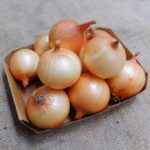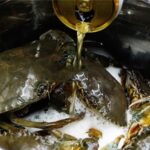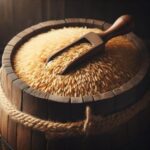When it comes to choosing onions at the market, you might be wondering whether to go for the heavier or lighter ones. Selecting onions correctly not only impacts the flavor of your dishes but also helps you save costs and maintain your health. This article will guide you on how to choose the best onions for your needs.
Should You Buy Heavy or Light Onions?
Heavy Onions
Pros
Heavier onions tend to have denser flesh, containing more water and nutrients. This adds a richer, fresher taste to your dishes. Heavy onions are usually freshly harvested and haven’t dried out or lost moisture.
Cons
Due to their higher water content, heavy onions may not keep as long as lighter ones if not stored properly. They can be more expensive due to their larger size.
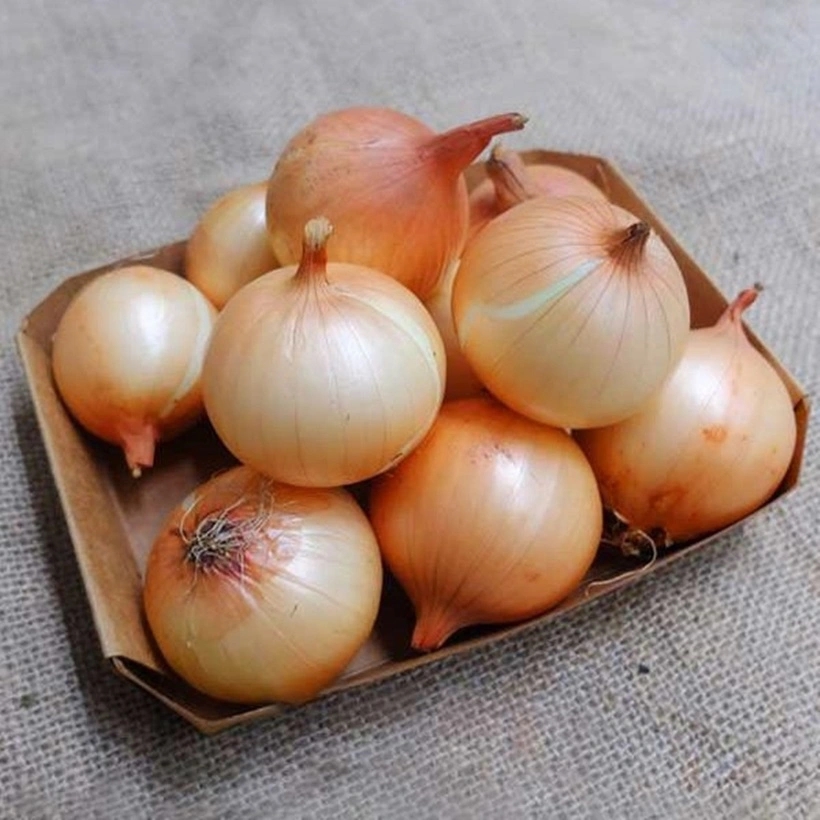
Which is better, heavy or light onions? Tips for choosing the best onions.
Light Onions
Pros
Lighter onions are generally easier to store for longer periods as they contain less water, reducing the risk of mold or rot. They are usually more affordable due to their smaller size.
Cons
Light onions tend to be drier, with less water and nutrient content, which can make them less appealing in dishes. They may have dried out during prolonged storage, losing their initial freshness.
So, Which Is Better – Heavy or Light Onions?
For Immediate Use: If you plan to use onions right away in your daily cooking, go for the heavier ones. They will provide the freshest flavor and the highest nutritional value.
For Long-Term Storage: If you want to buy onions for long-term storage, choose the lighter ones. They are easier to store and less prone to spoilage than heavy onions.
Tips for Choosing the Best Onions
Skin: The skin of a good onion should be shiny and evenly colored, without any spots or roughness. Look for thin, dry skin that clings tightly to the bulb. Avoid onions with cracked, damp, or moldy skin.
Shape: Choose onions with a round, uniform shape, avoiding misshapen, flat, or elongated ones. Irregularly shaped onions often have inferior quality.
Bulb: Go for firm, solid bulbs, avoiding soft or cracked ones. Gently shake the onion; if you don’t hear any rattling, it’s a good choice.
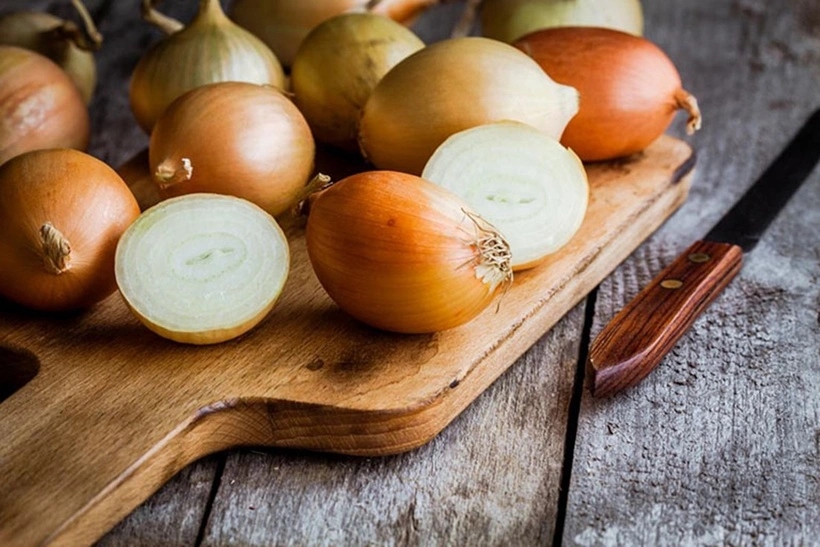
Heavy or light onions – which is better? Tips for choosing delicious onions.
Roots: Look for onions with long, fibrous roots, indicating freshness. Avoid onions that have lost their roots entirely, as these have likely been stored for a long time and are no longer at their best.
Aroma: Choose onions with a mild, pleasant aroma, avoiding those with a strong, pungent smell. Onions with a sharp smell are usually older and past their prime.
Weight: Select onions that feel relatively heavy for their size. Heavier bulbs tend to have more water and nutrient content. Avoid very light onions, as they may be shriveled or damaged inside.
Note: Buy onions in season for the best quality. Store onions in a cool, dry place, not in the refrigerator, to preserve their flavor and nutritional value.
Whether to buy heavy or light onions depends on your needs and intended use. Heavy onions are ideal for dishes requiring a fresh, robust flavor, while light onions are perfect for long-term storage. Consider your requirements carefully to ensure you always have the best onions for your family’s meals.
According to Life and Law
“Are You Loading Your Washing Machine Wrong? – The 7kg and 12kg Dilemma”
The weight limit on a washing machine, such as 7kg, 9kg, or 12kg, refers to the weight of dry clothing. This is an important distinction to make, as wet clothing can weigh significantly more than dry clothing. For example, a load of dry clothes that weighs 7kg can easily exceed the 9kg mark when wet. Therefore, it is crucial to adhere to the weight limit specified by the manufacturer to ensure optimal washing machine performance and avoid any potential damage.
Unlock the Secret to Keeping Bananas Fresh for Up to 10 Days: No More Bruising and Discoloration
Bananas are a delicate fruit that is highly perishable at room temperature and prone to rapid ripening and spoilage. The challenge with bananas is finding the right storage conditions to prolong their freshness. While refrigeration can help extend their shelf life, it often results in unsightly dark bruises on the fruit’s bright yellow skin.
























